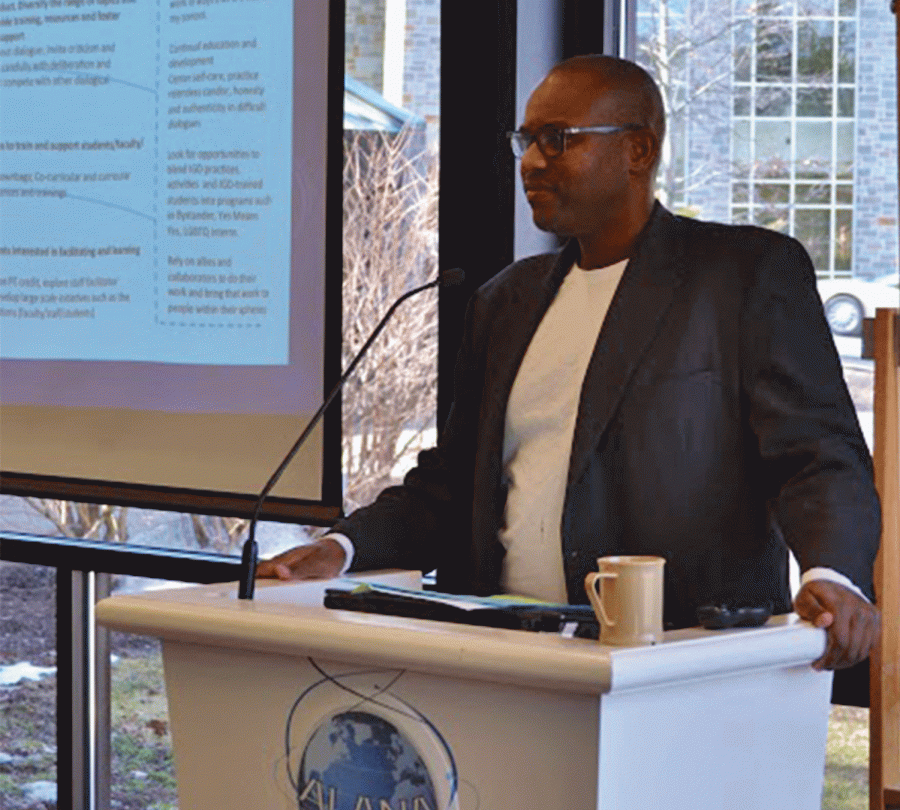kemp-delisser on the Four Dimensions of Campus Climate
On Monday, February 22, “Colgate Conversations” hosted the fifth and final installment of its brown bag series, titled “Moving from Dialogue to Action: Shifting Campus Climate” in the African, Latin American, Asian American and Native American (ALANA) Cultural Center. Administrators, faculty and students attended to hear Assistant Dean and Director of LGBTQ Initiatives khristian kemp-delisser facilitate an Intergroup Dialogue (IGD) about what each of us as individuals can do to make Colgate a more inclusive place.
kemp-delisser began the brown bag asking everyone to briefly talk to another individual in the audience about their identity and the gender pronouns they prefer, what brown bags they have attended in the past few weeks, where they feel most comfortable on campus and what everyone thinks is the outside perception of Colgate. This allowed students, faculty and administrators to get to know one another and also discuss different aspects of the Colgate community. Various partners shared their answers to the questions with the larger group and kemp-delisser facilitated the discussion of these introductory questions.
kemp-delisser then continued with his presentation, noting there are four different dimensions of campus climate: sociohistorical, psychological, behavioral and structural. Each of the introductory questions discussed in the smaller groups related to these four larger themes; name and gender pronouns refer to the structural dimension, brown bag attendances refers to behavioral, safest place on campus refers to psychological and the outsider’s perspective of Colgate refers to sociohistorical. Each attendee was then given a worksheet and instructed to consider each of the four dimensions and see where they felt they had the most impact or influence on campus.
Numerous suggestions were made, from the idea of having upperclassmen generate conversations with younger peers around campus about important topics to having structured dialogues between faculty departments on a weekly basis to ensure intergroup dialogue continues on campus. Ultimately, everyone walked out of the brown bag with a personal action plan for how to initiate change as an individual on Colgate’s campus. The brown bag emphasized the importance for future action and continuing these IGD conversations.
Administrative Dean Sarah H. Jones expressed how she really enjoyed the IGD discussion.
“It is a great mix of students, faculty and staff members coming together to discuss important topics in our community. It is helpful to hear ideas from around the room and think about ways they can be incorporated into your day-to-day experience on campus,” Jones said.
Senior Brett Christensen agreed with this sentiment.
“I think it’s really important to have these intergroup dialogue style discussions. And it was cool that we went over what we can do to bring the larger campus into these conversations,” Christensen said.
Sophomore Kaitlin Abrams thought this brown bag was a great way to end the “Colgate Conversations” series.
“All the brown bags in this series have been quite unique from the usual Colgate brown bags, allowing me to talk with the people around me about my personal experiences and learn from differences within the group, with the eventual goal of alliance building,” Abrams said.







